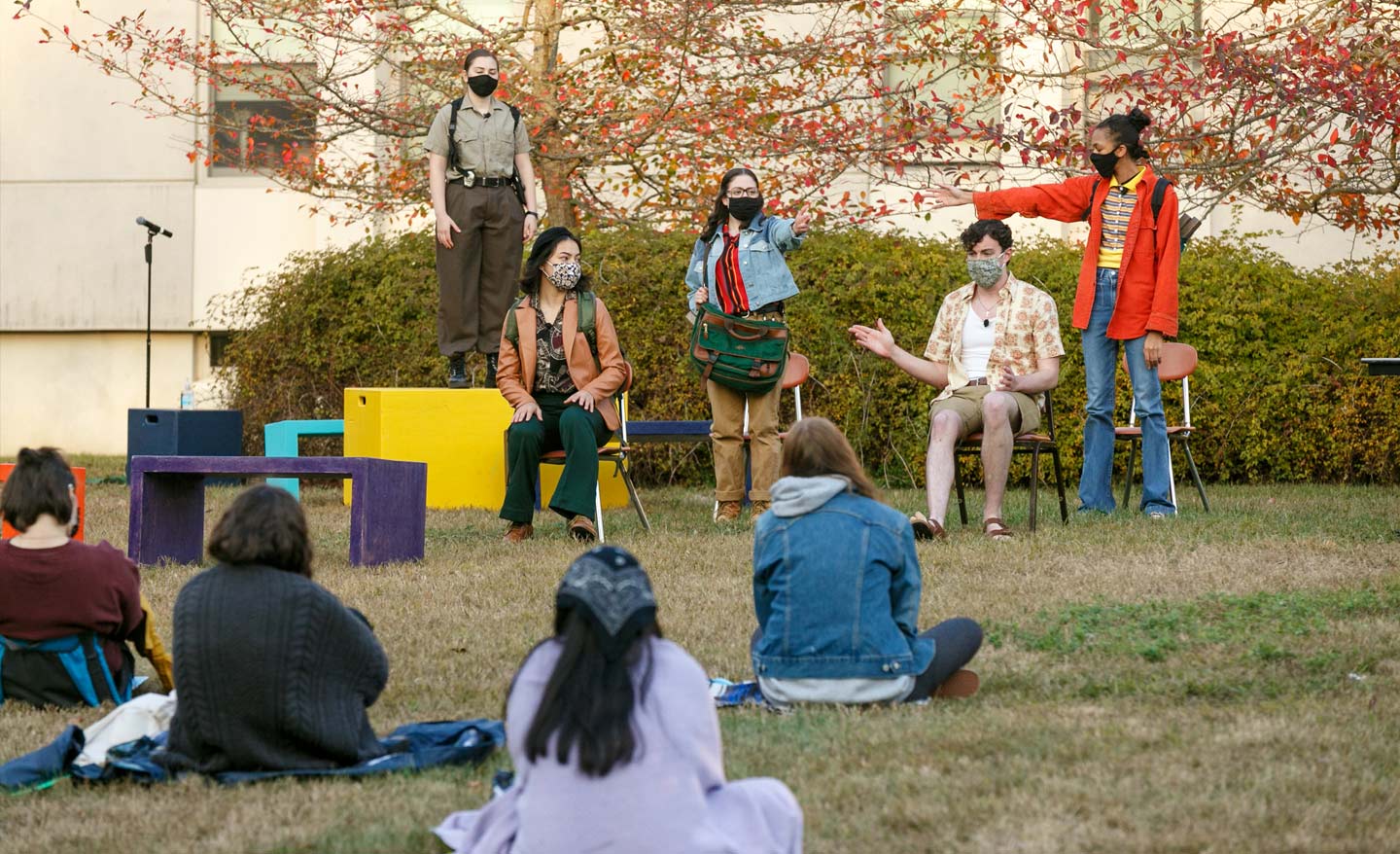Acting Out
Conn is one of the first colleges to hold live performances during the pandemic.
Theater reinvents itself every 100 years. COVID-19 has created opportunities for yet another reinvention inspired by the earliest days of theatrical performance.
In October, Conn students performed a play outside in response to the pandemic that has shuttered theaters from Broadway to small liberal arts colleges across the country.
The play, Seven Twenty-Five, written by Ana Reyes-Rosado ’20, and directed
by guest artist Jude Sandy and Andre Thomas ’20, who served as associate director, centers on the suppressed history of the Puerto Rican revolution in the 1970s and the question of who has the right to write or rewrite history.
“We cannot progress towards genuine equity at Conn, in the U.S. and in American theater without supporting this kind of valuable work by one of our own,” Sandy said. “To come to a full understanding of our country, we must witness and listen to the lives, perspectives and contributions of Puerto Rico to U.S. society.”
To adapt to the challenges of the pandemic, Conn’s theater students studied the methods employed by ancient Greek theater and Shakespearean actors before electricity and fixed indoor performance spaces made possible what most of us think of a theater experience today.
Ken Prestininzi, who chairs the theater department, said it was important to revisit those ancient techniques and also consider how modern technology might be blended with them to create hybrid models for performing safely during a pandemic.
“People think of theater as being in an auditorium with people sitting knee to knee, but that’s not the actor-audience relationship that has existed throughout most of history, so we wanted to look at different ways of defining that relationship,” Prestininzi said. “One of the most important elements of theater is to bring people together for a shared experience, so we can still do that with outside performances and social distancing.”
For Seven Twenty-Five, simple logistics like costume fitting and design had to be done remotely, with the actors measuring themselves by following instructions over a Zoom video call.
Despite the challenges, costume designer Carly Sponzo ’21 said, “These characters were such a treat to design for and I was so grateful to be able to do it during the pandemic when theatre everywhere is struggling.”
